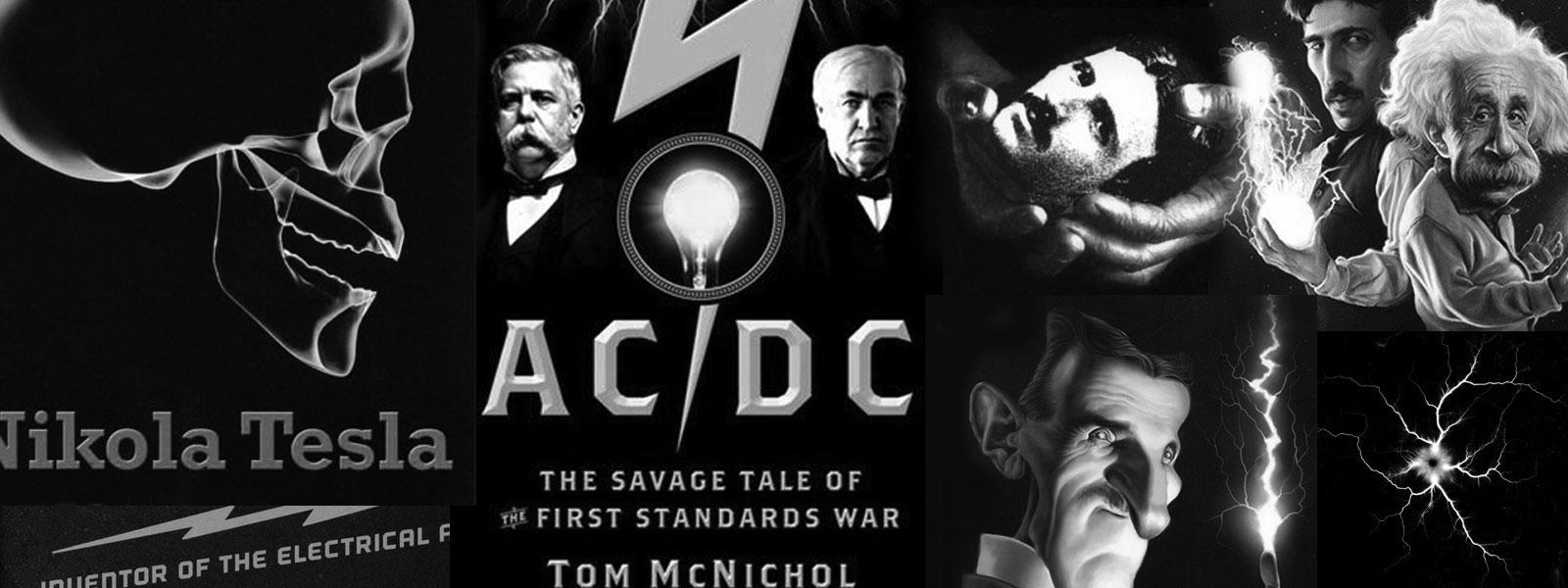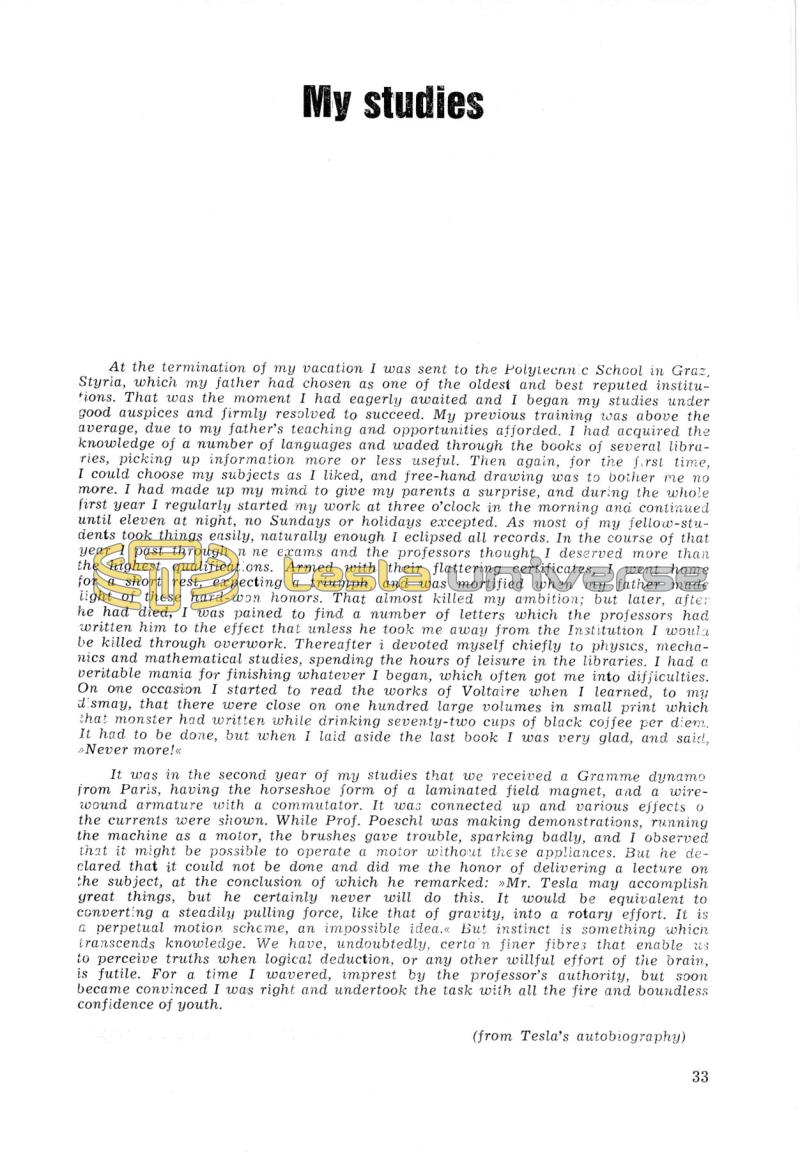
Nikola Tesla Books
My studies
At the termination of my vacation I was sent to the Polytechnic School in Graz, Styria, which my father had chosen as one of the oldest and best reputed institutions. That was the moment I had eagerly awaited and I began my studies under good auspices and firmly resolved to succeed. My previous training was above the average, due to my father's teaching and opportunities afforded. I had acquired the knowledge of a number of languages and waded through the books of several libraries, picking up information more or less useful. Then again, for the first time, I could choose my subjects as I liked, and free-hand drawing was to bother me no more. I had made up my mind to give my parents a surprise, and during the whole first year I regularly started my work at three o'clock in the morning and continued until eleven at night, no Sundays or holidays excepted. As most of my fellow-students took things easily, naturally enough I eclipsed all records. In the course of that year I past through nine exams and the professors thought I deserved more than the highest qualifications. Armed with their flattering certificates, I went home for a short rest, expecting a triumph, and was mortified when my father made light of these hard-won honors. That almost killed my ambition; but later, after he had died, I was pained to find a number of letters which the professors had written him to the effect that unless he took me away from the Institution I would be killed through overwork. Thereafter I devoted myself chiefly to physics, mechanics and mathematical studies, spending the hours of leisure in the libraries. I had a veritable mania for finishing whatever I began, which often got me into difficulties. On one occasion I started to read the works of Voltaire when I learned, to my dismay, that there were close on one hundred large volumes in small print which that monster had written while drinking seventy-two cups of black coffee per diem. It had to be done, but when I laid aside the last book I was very glad, and said, "Never more!"
It was in the second year of my studies that we received a Gramme dynamo from Paris, having the horseshoe form of a laminated field magnet, and a wire-wound armature with a commutator. It was connected up and various effects of the currents were shown. While Prof. Poeschl was making demonstrations, running the machine as a motor, the brushes gave trouble, sparking badly, and I observed that it might be possible to operate a motor without these appliances. But he declared that it could not be done and did me the honor of delivering a lecture on the subject, at the conclusion of which he remarked: "Mr. Tesla may accomplish great things, but he certainly never will do this. It would be equivalent to converting a steadily pulling force, like that of gravity, into a rotary effort. It is a perpetual motion scheme, an impossible idea." But instinct is something which transcends knowledge. We have, undoubtedly, certain finer fibres that enable us to perceive truths when logical deduction, or any other willful effort of the brain, is futile. For a time I wavered, imprest by the professor's authority, but soon became convinced I was right and undertook the task with all the fire and boundless confidence of youth.
(from Tesla's autobiography)
